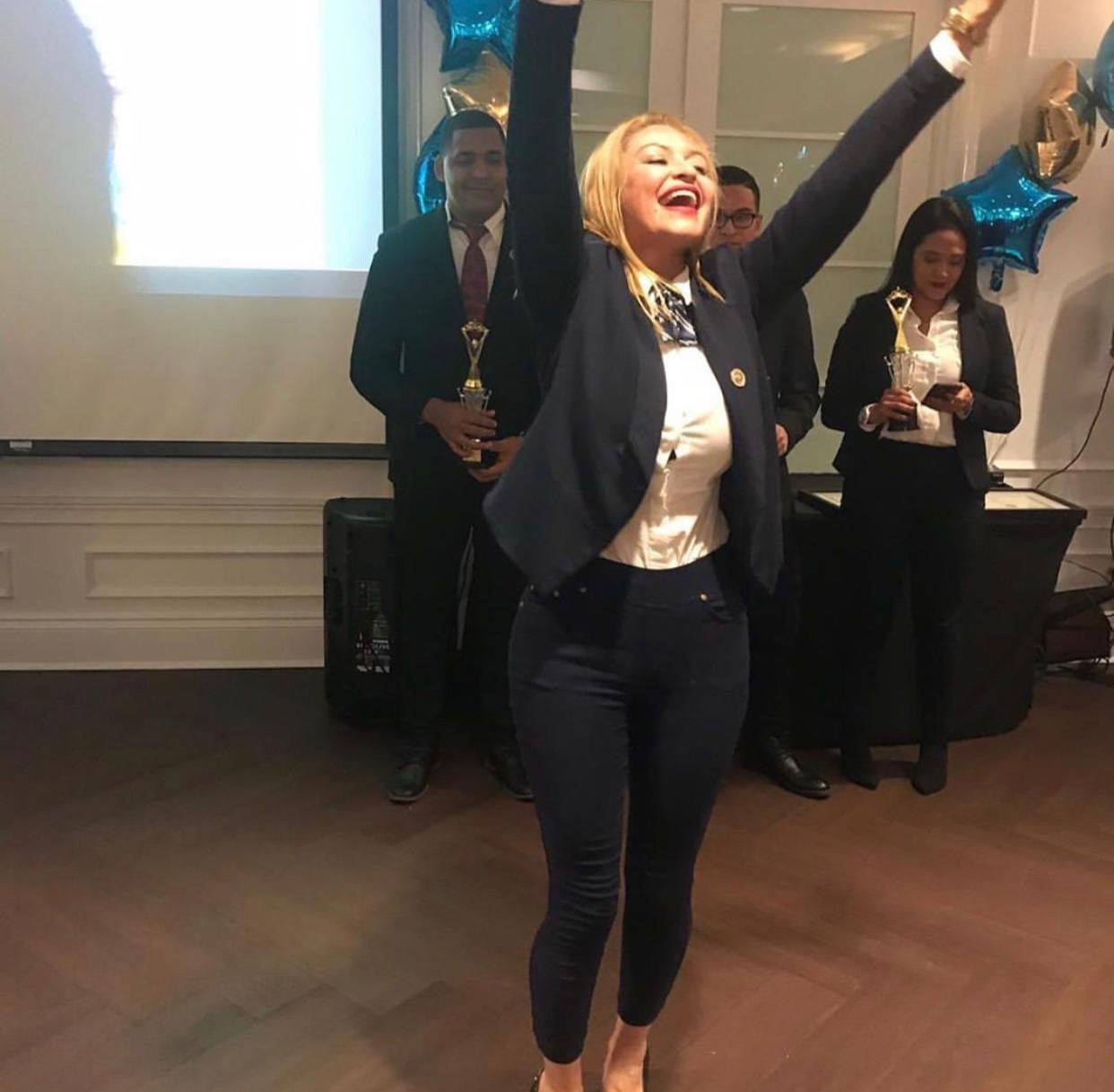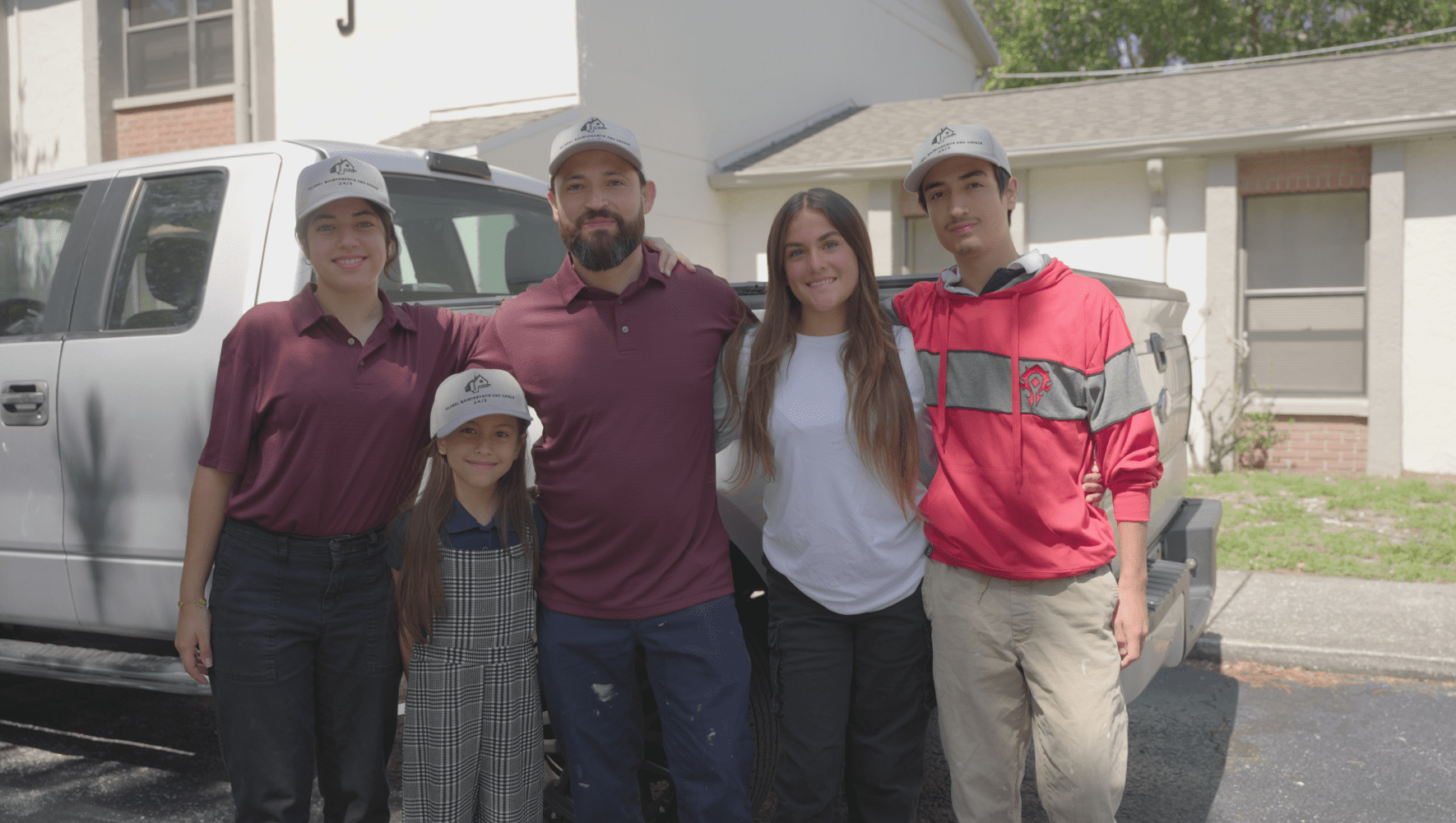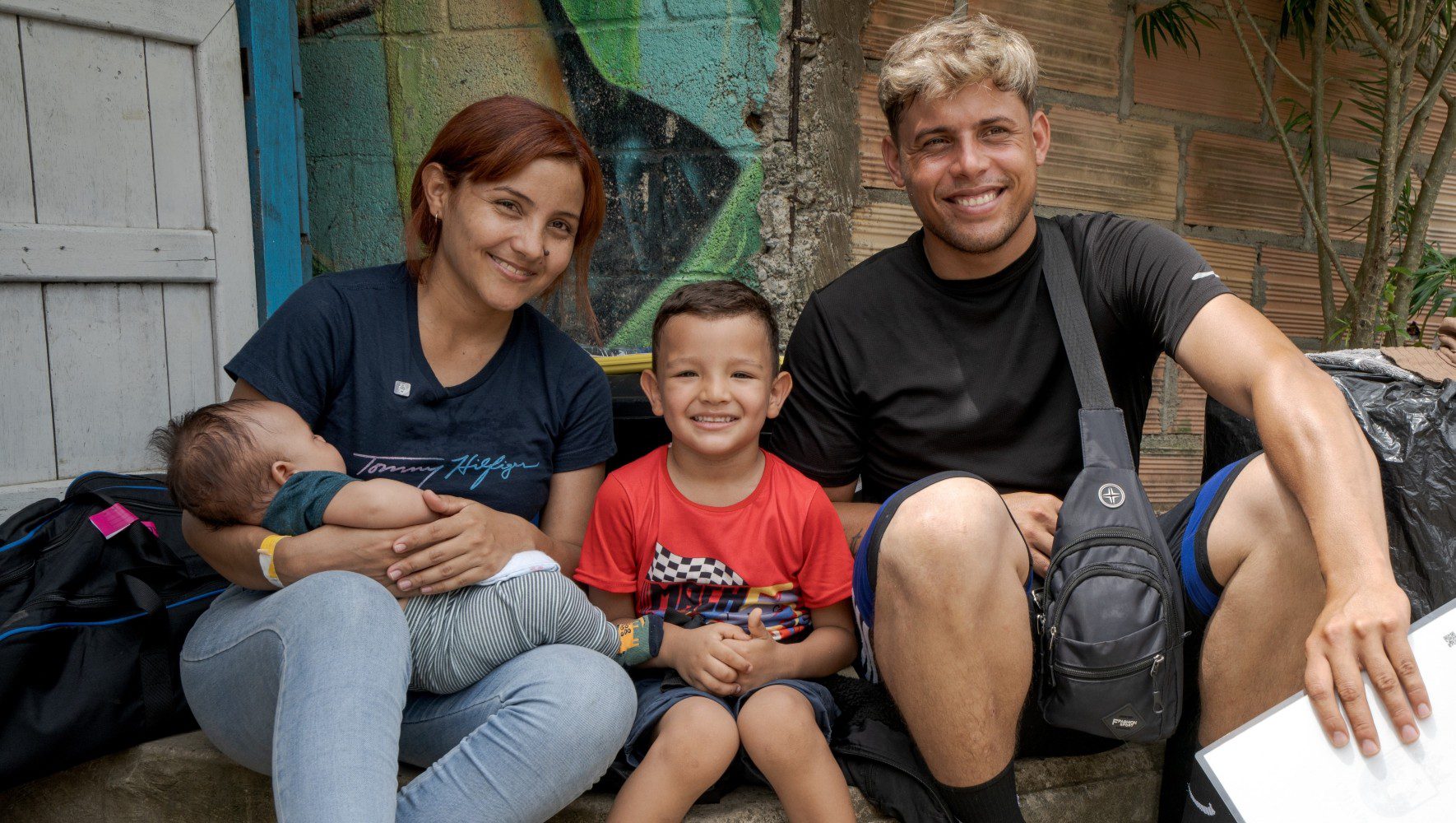Asylum Seekers Often Struggle to Find Health Care
By Alanna Cruz and Vincent Caporaso, HIAS interns
Mar 02, 2021

"Ana," an asylum seeker from Venezuela, pictured at a work event. Since coming to the U.S., she has been diagnosed with kidney failure and is struggling to get health care.
(HIAS)
“I cannot receive support or help … if I don’t have papers in this country.” These are the words of Ana*, a 38-year-old Venezuelan woman who came to the United States as an asylum seeker.
Ana is one of 5 million Venezuelans who have fled political unrest in their country since 2014. She arrived in the U.S. in 2017 on a tourist visa with her nine-year-old son and reunited with other family members who had migrated earlier. Despite her desire for a fresh start at a new life, Ana received devastating news upon her arrival: one of her kidneys was failing. She would need dialysis and, eventually, a kidney transplant in order to survive.
But Ana, who turned to HIAS' New York office for help with her medical issues, could not get access to the health care she needed. She is not able to access government-funded forms of health care while she waits for her asylum case to be heard. The only option left to Ana is to pay the full bill — around $500,000 – or go without this urgent surgery and remain on dialysis as a stopgap solution. “Since [being] diagnosed with kidney disease, everything in my life has changed," she said.
Ana's case is far from unique. According to the State Department, approximately 30,000 asylum seekers entered the U.S. in 2019 alone. Although not all asylum seekers face problems as severe as Ana's, many have similar challenges obtaining proper health care. While qualified non-citizens, including asylees, are legally able to obtain limited health care, the Substance Abuse and Mental Health Services Administration has found they are often unable to afford the coverage.
Yet these individuals are often in particular need of medical support. Many have endured poverty, repeated trauma, violence, exposure to infectious diseases at detention centers, and other problems, both in their home countries and on the way to the U.S. And while some can use emergency services in the most dire situations, those limited cases are not enough. Ana, for instance, is able to receive emergency kidney dialysis to stay alive, but still cannot access care beyond that most basic level.
"Emergency care, which some immigrants and refugees are locked out of due to social, political, and economic barriers, is no substitute for a commitment to a rights-based approach to health care for all human beings,” said Nolan Kline, an assistant professor of anthropology at Rollins College.
Kline and other experts argue the United States must expand health coverage and make health care a fundamental right. The United Nations and World Health Organization have designated universal health coverage and increased protections for migrants as Sustainable Development Goals, to be addressed by the year 2030.
Until there are more comprehensive options for health care access in the U.S., asylum seekers like Ana will be at risk of losing their lives over curable issues. Yet she remains hopeful about her prospects. “I am in a country that has given me the opportunity to fight with my son,” she said, “and I think about my high hopes to get ahead.”
*Pseudonym used for client’s protection.



